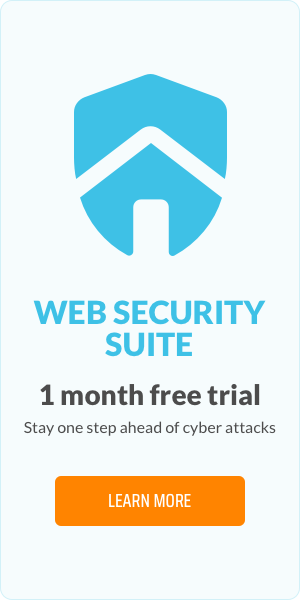Top 5 Ways to Protect Your Business from Hackers

Running an online business comes with many advantages – flexibility, global reach, and 24/7 accessibility. But it also makes you a target for cyberattacks. Hackers look for vulnerabilities in websites to steal data, disrupt operations, or even hijack your site. Think your business is too small to be a target? Think again.
The impact of a cyberattack can be devastating, but the good news? You can take practical steps to secure your business and avoid becoming an easy target. Here are five ways to protect your online business from hackers.
1. Use strong passwords and Two-Step Verification (TSV)
One of the easiest ways hackers gain access to websites is through weak passwords. Using simple, guessable passwords is like leaving your front door unlocked.
Here’s what you can do:
- Use passwords that are at least 12 characters long and include a mix of upper- and lowercase letters, numbers, and symbols.
- Avoid using the same password across multiple accounts.
- Enable two-step verification (TSV) to add an extra layer of security. This requires users to verify their identity with a code sent to their phone or email.
2. Keep your software and plugins updated
Hackers often exploit vulnerabilities in outdated software. Keeping your CMS (like WordPress), plugins, and themes up to date is essential for website protection.
What to update regularly:
- Your website’s core software (WordPress, Joomla, Magento, etc.).
- Plugins and extensions you use to add functionality to your site.
- Themes and templates.
Updating your website helps patch security holes that hackers could exploit. Set automatic updates whenever possible to make the process easier.
3. Perform regular malware scans
Malware can quietly infiltrate your website without you even realising it. It can slow down your site, steal sensitive data, and even get your site blacklisted by search engines.
How to stay protected:
- Use a malware scanner to regularly check your website for malicious code. A comprehensive tool like our Web Security Suite can help detect and remove malware to keep your site clean.
- Schedule scans frequently, especially after installing new plugins or making changes to your site.
4. Back up your website frequently
Imagine losing all your website data after a cyberattack. It’s a nightmare scenario, but one you can avoid with regular backups.
Why backups are essential:
- They allow you to restore your website quickly if it gets hacked.
- Automated backups ensure you always have a clean version of your site ready to go.
Consider using backup solutions provided by your hosting provider. A reliable backup solution is a must-have for any online business.
5. Implement a Web Application Firewall (WAF)
A Web Application Firewall (WAF) acts as a security gatekeeper for your website. It monitors and filters incoming traffic to block malicious activity before it reaches your site.
Why you need a WAF:
- It prevents common attacks like SQL injections and cross-site scripting (XSS).
- A WAF also protects against DDoS attacks that can overwhelm your server.
Many hosting providers offer WAF services as part of their security packages. If not, you can use third-party tools to add this layer of protection.
Bonus tip: Educate your team
Security isn’t just about tools – it’s also about people. Make sure your team is aware of common threats like phishing emails and suspicious links. Regular training sessions can go a long way in preventing security breaches.
Final thoughts
Securing your online business from hackers doesn’t have to be overwhelming. By following these steps, you can significantly reduce your risk and keep your website safe. Remember, a combination of strong passwords, regular malware scans, backups, and firewalls can make a huge difference.
Stay proactive and protect your business today!

What Makes A Good Website? 2025 Tips and Tricks
Related articles:
